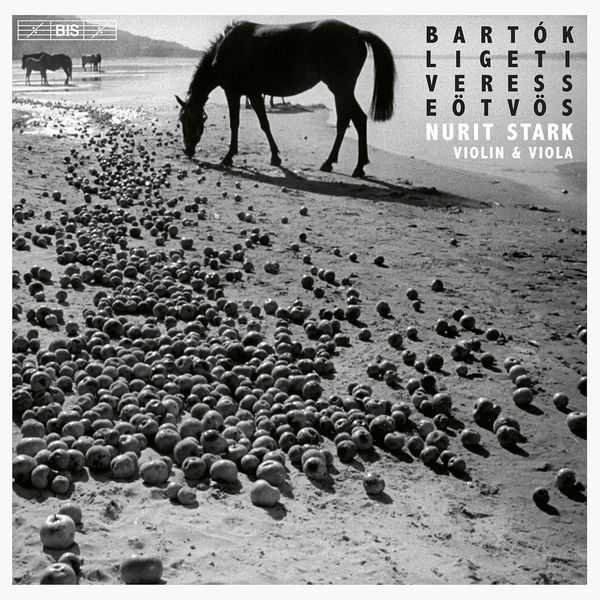

Composer: Béla Bartók, György Ligeti, Sándor Veress, Peter Eötvös
Performer: Nurit Stark
Format: FLAC (tracks)
Label: BIS
Catalogue: BIS2416
Release: 2022
Size: 1.41 GB
Recovery: +3%
Scan: yes
Bartók: Sonata for Violin Solo, Sz. 117
01. I. Tempo di ciaccona
02. II. Fuga. Risoluto, non troppo vivo
03. III. Melodia. Adagio
04. IV. Presto
Ligeti: Sonata for viola solo
05. I. Hora lungă
06. II. Loop
07. III. Facsar
08. IV. Prestissimo con sordino
09. V. Lamento
10. VI. Chaconne chromatique
Veress: Sonata For Violin Solo
11. I. Allegro
12. II. Adagio
13. III. Allegro molto
14. Eötvös: Adventures of the Dominant Seventh Chord
The works on this album were written between 1935 and 2019 by four Hungarian composers: Béla Bartók, who was the teacher of Sándor Veress, who taught György Ligeti, who in turn was an early but formative influence on Péter Eötvös. Their compositions all share the idea of a dialogue between cultured and popular elements, between a Western music tradition and folk music, particularly of Eastern Europe. This idea was formulated in the early 20th century by Bartók himself, who considered the use of folk elements in a piece of art music not only as a tool to revitalize the Classical tradition but also as a mean to unite different cultures.
In the works recorded here, the dialogue is manifested in various ways, for instance through references to Baroque idioms and forms as well as folk styles in the solo sonatas by Bartók and Ligeti. In the case of Adventures of the Dominant Seventh Chord by Péter Eötvös it is the dominant seventh chord that stands as a symbol of Western tonality. Recurring frequently, the chord never reaches the expected resolution, however – instead it is confronted with non-tonal materials inspired by the folk music of Eastern Europe.
Based in Germany, the violinist Nurit Stark was born in Israel into a family which hails from Romania. Peter Eötvös’s work – which was written for her – therefore provides the perfect ending to this very personal project, dealing with the ability of music to cross cultural, geographical and ideological borders.



